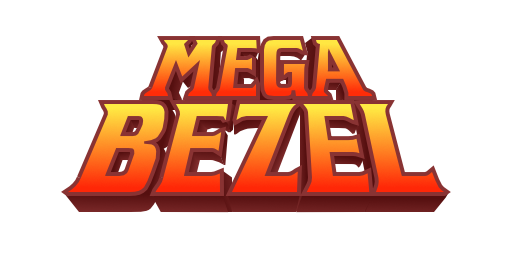If you can’t do it by just scaling and positioning the screen then you are out of luck. (You’ll have to play with the aspect also.)
It is a pretty simple layout though.
<mamelayout version="2">
<element name="bezel">
<image file="irrmaze_bezel.png" />
</element>
<view name="Upright_Artwork">
<screen index="0">
<bounds x="408" y="221" width="1200" height="900" />
</screen>
<bezel element="bezel">
<bounds x="0" y="0" width="2000" height="1660" />
</bezel>
</view>
</mamelayout>
<!--
- Artwork type: Bezel
- Photographed bezel provided by Bobby Tribble
- Converted for MAME by Mr. Do
- Lay file by Mr. Do
-->
So it should be possible.
Edit: Not going to be possible after all, without some serious effort.
The thing is that applying a layout in MAME disables the hard coded layout. I’m sure there are no flashing lights in MAME standalone using the Mr. Do layout.
In MAME you could recreate the lights and place them where you want but in the shader everything is part of the screen.
You could use the screen only base preset but you would need to edit the hard coded layout and do a custom compile. The hard coded layout is not as simple.
<!--
license:CC0
copyright-holders:Vas Crabb
-->
<mamelayout version="2">
<!--
sit0...sit9 TIMER LAMP *0x10fe1c & 0x03ff
sit10 TRACK BALL LAMP *0x10fe1f != 0
sit11 SIDE LAMP *0x10fe20 != 0
sit12...sit13 COLOR LAMP *0x10fe21 & 0x0003
sit14 FLASH LAMP *0x10fe22 != 0
sit15 ??? *0x10fe29 != 0
-->
<element name="white">
<rect><color red="1" green="1" blue="1" /></rect>
</element>
<element name="marquee">
<rect><color red="0.5" green="0" blue="0" /></rect>
</element>
<element name="colorlamp">
<rect state="0"><color red="0.4" green="0.4" blue="0.4" /></rect>
<rect state="1"><color red="1" green="0.3" blue="0.2" /></rect>
</element>
<element name="timerlamp">
<disk state="0"><color red="0.3" green="0" blue="0" /></disk>
<disk state="1"><color red="1" green="0.3" blue="0.1" /></disk>
</element>
<element name="sidelamp">
<rect state="0"><color red="0.5" green="0.5" blue="0.1" /></rect>
<rect state="1"><color red="1" green="1" blue="0.5" /></rect>
</element>
<element name="flashstick" defstate="1">
<rect state="0"><color red="1" green="1" blue="1" /></rect>
<rect state="1"><color red="0" green="0" blue="0" /></rect>
</element>
<element name="flashgrille" defstate="1">
<disk state="0"><color red="1" green="1" blue="1" /></disk>
<disk state="1"><color red="0" green="0" blue="0" /></disk>
</element>
<element name="cpanel">
<rect><color red="0.4" green="0.4" blue="0.4" /></rect>
</element>
<element name="trackball">
<disk state="0"><color red="0.6" green="0" blue="0" /></disk>
<disk state="1"><color red="0.9" green="0.5" blue="0.1" /></disk>
</element>
<element name="redbtn">
<disk state="0"><color red="0.7" green="0" blue="0" /></disk>
<disk state="1"><color red="0.35" green="0" blue="0" /></disk>
</element>
<element name="bluebtn">
<disk state="0"><color red="0.2" green="0.5" blue="1" /></disk>
<disk state="1"><color red="0.1" green="0.25" blue="0.5" /></disk>
</element>
<view name="Cabinet Lamps">
<screen index="0"><bounds x="3.5" y="4.4" width="16" height="12" /></screen>
<collection name="Marquee and Timer Lamps">
<element ref="marquee"><bounds x="0" y="0" width="23" height="2.5" /></element>
<element ref="colorlamp" name="sit13"><bounds x="0" y="0" width="11.5" height="1" /></element>
<element ref="colorlamp" name="sit12"><bounds x="11.5" y="0" width="11.5" height="1" /></element>
<element ref="timerlamp" name="sit9"><bounds x="2" y="1.25" width="1" height="1" /></element>
<element ref="timerlamp" name="sit8"><bounds x="4" y="1.25" width="1" height="1" /></element>
<element ref="timerlamp" name="sit7"><bounds x="6" y="1.25" width="1" height="1" /></element>
<element ref="timerlamp" name="sit6"><bounds x="8" y="1.25" width="1" height="1" /></element>
<element ref="timerlamp" name="sit5"><bounds x="10" y="1.25" width="1" height="1" /></element>
<element ref="timerlamp" name="sit4"><bounds x="12" y="1.25" width="1" height="1" /></element>
<element ref="timerlamp" name="sit3"><bounds x="14" y="1.25" width="1" height="1" /></element>
<element ref="timerlamp" name="sit2"><bounds x="16" y="1.25" width="1" height="1" /></element>
<element ref="timerlamp" name="sit1"><bounds x="18" y="1.25" width="1" height="1" /></element>
<element ref="timerlamp" name="sit0"><bounds x="20" y="1.25" width="1" height="1" /></element>
</collection>
<element ref="flashstick" name="sit14"><bounds x="0.75" y="6.5" width="1.5" height="5.5" /></element>
<element ref="sidelamp" name="sit11"><bounds x="0.5" y="12.5" width="2" height="4.5" /></element>
<element ref="flashstick" name="sit14"><bounds x="20.75" y="6.5" width="1.5" height="5.5" /></element>
<element ref="sidelamp" name="sit11"><bounds x="20.5" y="12.5" width="2" height="4.5" /></element>
<element ref="flashgrille" name="sit14"><bounds x="7" y="17.25" width="3" height="2.5" /></element>
<element ref="flashgrille" name="sit14"><bounds x="13" y="17.25" width="3" height="2.5" /></element>
<collection name="Control Panel">
<element ref="cpanel"><bounds x="4.5" y="20" width="14" height="7" /></element>
<element ref="trackball" name="sit10"><bounds x="10" y="22" width="3" height="3" /></element>
<element ref="bluebtn" inputtag="edge:irrmaze:START" inputmask="0x01"><bounds x="11.125" y="20.125" width="0.75" height="0.75" /></element>
<element ref="redbtn" inputtag="edge:irrmaze:BUTTONS" inputmask="0x10"><bounds x="7" y="23" width="1" height="1" /></element>
<element ref="bluebtn" inputtag="edge:irrmaze:BUTTONS" inputmask="0x20"><bounds x="5" y="22.5" width="1" height="1" /></element>
<element ref="redbtn" inputtag="edge:irrmaze:BUTTONS" inputmask="0x40"><bounds x="15" y="23" width="1" height="1" /></element>
<element ref="bluebtn" inputtag="edge:irrmaze:BUTTONS" inputmask="0x80"><bounds x="17" y="22.5" width="1" height="1" /></element>
</collection>
</view>
<view name="Screen 0 Standard (320x224)">
<screen index="0">
<bounds left="0" top="0" right="4" bottom="3" />
</screen>
</view>
<view name="Screen 0 Cropped (304x224)">
<element ref="white">
<bounds x="8" y="0" width="304" height="240" />
</element>
<screen index="0" blend="multiply">
<bounds x="0" y="0" width="320" height="240" />
</screen>
</view>
<view name="Screen 0 Stretched (304x224)">
<bounds left="8" top="0" right="312" bottom="228" />
<element ref="white">
<bounds x="8" y="0" width="304" height="228" />
</element>
<screen index="0" blend="multiply">
<bounds x="0" y="0" width="320" height="228" />
</screen>
</view>
</mamelayout>
Which is why you have the fancy lights.
This would be a LOT of tedious trial and error and probably not worth it for one game.




























